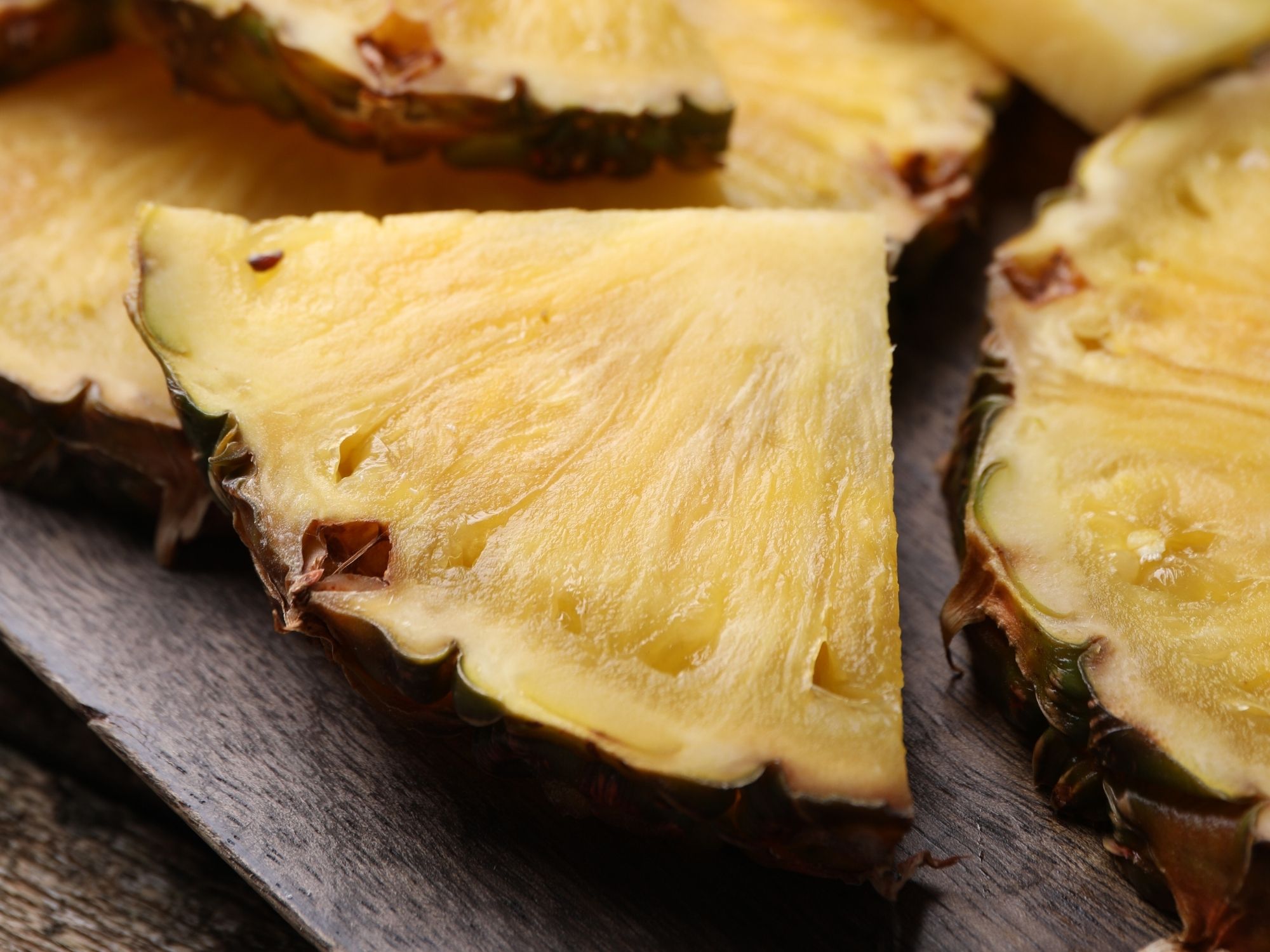Market Report June 2023
Pineapple
Large parts of Southeast Asia have been experiencing unusually high temperatures for weeks. As in many other parts of the world, climate change is also having an impact here. According to experts, there is also a high probability of an impending El Niño phase in the summer months. The weather phenomenon occurs approximately every 4 to 7 years in the equatorial Pacific and leads to a rise in temperature in this region, which is likely to make the situation even more difficult for the local population and agriculture.
Dried-out plants, small fruits and considerable crop losses are the result. Continuous pineapple production has not been possible for weeks due to the small quantities. Now that the disastrous summer harvest in Thailand will end in June, industry experts are also expecting noticeable consequences for the winter harvest in the fourth quarter.
The high stocks held by many producers in winter have now largely been reduced and there are initial signs that the recent weak demand for pineapple products is picking up again somewhat. The combination of these factors has caused prices to rise continuously in recent weeks. The end of the line has probably not yet been reached. With our long-standing and reliable partners from various origins, we believe we are well equipped to meet these challenges.
Sustainable Sourcing
We source most of our pineapples from South East Asia and Africa. We work closely with producers who, like us, attach great importance to sustainability.
An important goal here is to use resources as efficiently and sparingly as possible. For example, the fruit waste generated during production is reused by local farmers as compost or animal feed. The water required in production mostly comes from our own water treatment plants. With a view to reducing greenhouse gas emissions, energy from renewable sources is an important aspect. The high level of solar radiation in the growing regions on the equator is predestined for electricity generation using photovoltaic systems. Some producers have already made a significant contribution here, while others have yet to take this step.
Both the topic of sustainability and compliance with social standards are important agenda items during our regular on-site visits and in our ongoing dialog.
Through the above practices, we are pleased to work with our partners to minimize environmental impact, support local farmers and contribute to sustainability in pineapple production.
Tomatoes
Tomato producers in the Spanish region of Extremadura are confident about the coming season. With sufficient water reserves and a planned increase in cultivation quantities, they expect greater availability of tomatoes. Energy costs will be lower than in the previous year, but still at a high level. In Andalusia, on the other hand, water reserves are scarce, the reservoirs have even less water than in 2022, so that very little raw material is grown and producers will produce even less, if any at all.
Commodity prices also continue to play a decisive role in Italy. The negotiations between farmers and northern Italian producers, which were temporarily suspended due to tensions, were only concluded to the farmers’ satisfaction in mid-May. The raw material prices of tomatoes from northern Italy are now at the same level as Spain (EUR 150 per tonne). In Italy, we observed an increase of almost 40% compared to the previous year.
In the Emilia-Romagna region, some fields in the east have suffered damage due to heavy rainfall and flooding. Producers there are expecting a crop loss of around 15%. As with pineapples and the like, prices are expected to rise here too.
Coconut milk
After a prolonged downward trend, prices are rising again. There are many reasons for this. Until the beginning of this year, many customers were reluctant to call up and top up. Consumption (local and export) has recently slowed. Stocks are now empty and demand is picking up again.
There has been a huge surge in demand from China in particular following the reopening in February/March. At the same time, there have recently been unexpected slumps in harvests, particularly in Indonesia. Significantly fewer coconuts are harvested in the so-called ‘low yield’ phase. In general, there is a pattern in which three years with good harvests are followed by one or two years with lower yields. Climate change and the effects of the impending El Niño, which is expected to cause severe droughts, are also contributing to the tense situation.
The upward price trend is expected to continue and the availability of raw materials will remain tight. Similar prices to the previous year are therefore not to be expected. To avoid bottlenecks, we recommend securing new contract volumes now and preparing for them in good time.
Tuna
In the Western Pacific, landings and catch volumes remain below expectations, leading to firm prices due to the limited supply of raw materials. From the beginning of July, the “fad ban” will also begin for 3 months, which will also have no positive impact on catch volumes. The price of skipjack tuna in Bangkok is therefore currently quoted at USD 2,050/t. At the same time, we are seeing a lack of demand from retailers, which is why packers are reducing their production capacities. (MSC-certified) tuna flakes in particular are extremely scarce in this overall situation.
The price situation in the Eastern Pacific is somewhat better. Thanks to good catch volumes in the first few months of the year, there are sufficient raw materials and a stable price level. Skipjack tuna is currently traded in Manta at a price of around USD 1,825/t.
We recommend covering open requirements for this year at short notice. A switch from flakes to chunks should also be considered if necessary. Feel free to contact us!
Frozen products
Frozen garlic
China is the world leader in garlic cultivation and therefore also one of our main sources of frozen garlic. The cultivation area in China has been significantly reduced for 2023. This reduction is mainly due to government subsidies for other products. As a result, the expected prices for the 2023 harvest will receive a further price boost in addition to the increased wage and energy costs. We expect to announce the final prices for the 2023 garlic harvest at the end of June. We recommend that you secure the desired stocks at an early stage.
TK Semi-Dried Tomatoes
Frozen semi-dried (cherry) tomatoes have been an integral part of our frozen range for many years. For the 2023 harvest, we have placed a particular focus on expanding our options for organic produce and have reached corresponding agreements with our suppliers for organic cultivation. As a rule, organic raw materials are not grown without a contract. As a result, the quantities are manageable and usually sold out long before the harvest. We still have available quantities and are offering these for deliveries from July 2023 to June 2024. For further information please do not hesitate to contact us!
Frozen onion
The onion harvest in 2022 was not sufficient to cover demand in Europe for the 2023 harvest. In times of difficult supply situations in Europe, we are naturally looking for other options. As a good alternative, we have been sourcing onions from China since February and have sufficient quantities available. Do not hesitate to contact us for more information or to place an order.
Although we consider our sources to be reliable, we do not assume any liability for the completeness and accuracy of the information listed here.









